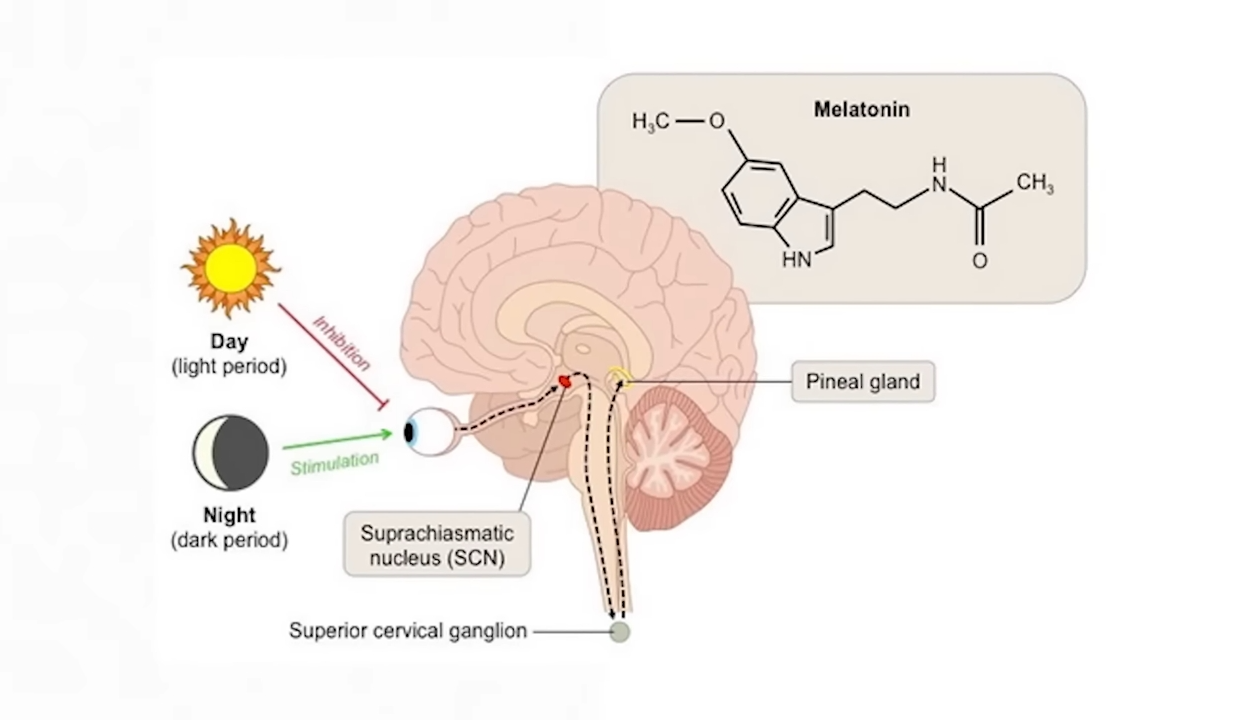To understand the mechanism of sleep, we need to learn about brain waves. Brain waves are electrical activities in the brain measured from when we are awake to when we are deeply asleep. When beta waves appear, we are fully awake. Next are the stages of drowsiness, dreaming, and deep sleep, represented by alpha, theta, and delta waves. The brain activity during the delta wave stage is the lowest, indicating that the body is in a deep restful state.
1. Sleep:

However, having quality sleep not only depends on reaching the deep sleep stage but also on many other factors such as sleep environment, sleep habits, and overall health. To have a good night's sleep, attention should be paid to these factors.
Therefore, if you go to bed from 10 pm to 6 am, your brain wave activity during these 8 hours will undergo changes. The brain wave chart will not go down like a frying pan and then go up. Instead, it will change in different ways. Brain waves will transition from the enfa state, then to the theta state, up to alpha, and then back down. Throughout the 8 hours of sleep, the brain does not operate in a uniform pattern from the beginning of sleep to waking up. Instead, it goes through many continuous cycles.
Each cycle usually lasts from 60 to 100 minutes, however, the length of each cycle may vary depending on the individual. Our bodies divide sleep into different stages, each stage with its own characteristics and varying cycles.
There are two main functions of sleep for our bodies: stages 3 and 4 help the body recover physically, while the REM stage helps organize and process information for the brain. The important thing is not the amount of sleep but the quality of sleep. To achieve the best sleep quality, you need to have enough stages 3 and 4, as well as a complete REM stage. This requires adjusting your sleep time to align with the body's natural sleep cycle.
The sleep clock is an important part of your daily life and is influenced by three main factors: your body's biological clock, sunlight, and the hormone melatonin - the alertness hormone. To effectively adjust your sleep clock, you need to understand these factors.
Firstly, your body's biological temperature plays an important role in making us feel relaxed and sleepy. Usually, around noon and after 9 pm, the body starts to cool down, leading to a feeling of drowsiness and easier sleep. Melatonin, a hormone produced more when we are exposed to darkness, also contributes to feeling drowsy. The higher the melatonin production, or when we are in a dark environment, the stronger the drowsiness. This explains why we often feel sleepy in a dark environment.
Although it may sound contradictory, being alert can also cause drowsiness. This means that, every time you are overly alert, your body will feel more tired, and when you try to be too alert, the drowsiness will be stronger. The better the quality of your sleep, the more refreshed and alert you will feel in the evening.
2. Clock:

Optimizing your circadian rhythm and improving sleep quality is an important process to ensure you have a good night's sleep. Your body's sleep clock is regulated by three main factors: biological rhythm, sunlight, and melatonin hormone. To readjust your sleep clock, you need to understand these factors.
Your body temperature usually drops during the cooling phase, accompanied by a state of relaxation. Often, the moments after lunch and in the evening are when you feel most drowsy and sleepy. Melatonin, a hormone produced when you are exposed to darkness, the more there is, the more drowsiness increases. Therefore, a dark environment will make you feel sleepier.
Exercising in the morning can increase your body temperature and help you feel more alert. Exposure to light during the day and avoiding bright light in the evening also helps synchronize your body's sleep cycle.
If you feel drowsy after lunch, consider taking a short nap, but not more than 45 minutes. This helps your body avoid deep sleep stages, making it easier for you to wake up. Waking up at the end of a sleep cycle will help you feel more alert and refreshed.
3. Good sleep:

Remember, to have a good night's sleep, it is not only important how long you sleep but also the quality of your sleep. Optimize your sleep conditions and habits to ensure you have deep and sufficient sleep at night and feel alert and refreshed during the day.
How to deal with insomnia?
If you experience conditions such as insomnia, for example, taking more than 30 minutes to fall asleep after lying in bed, or waking up in the middle of the night and having difficulty falling back asleep, causing fatigue in the morning, you can try the following methods:
Do not try to count sheep, as it is often ineffective. Instead, try to relax by focusing on a sentence and extending it.
Check your posture and position when lying in bed. If you keep tossing and turning, it may be a sign that your sleeping position is not comfortable. Adjust your pillow and lying position to find the most comfortable position.
Lower your body temperature by soaking or washing your feet before going to bed. This helps your body relax and feel more comfortable.
Ensure the room temperature and lighting are appropriate. Occasionally, turning off the lights completely and keeping the room in absolute darkness can help improve sleep quality.
Use sleeping pills only when there is no other option and only under medical supervision. Do not use sleeping pills without medical supervision.
Remember, insomnia can affect your health and well-being, so try the above methods to improve your sleep quality.
Conclusion
If you want to shorten your sleep time, make sure you still maintain a regular sleep cycle. Reducing sleep time does not mean you have to wake up earlier. If you cannot reduce further, stop there and remember that your goal is not to reduce sleep time but to improve sleep quality. With improvement, whether in sleep quality or sleep time, your daily life will naturally adjust accordingly.
4. Life:

Sleep - an important aspect that cannot be denied in our daily lives. Every night, as we quietly slip into the world of dreams, there are amazing and unexpected events happening in our bodies and minds. In modern life, many people often underestimate sleep or do not pay attention to what happens when they sink into sleep. However, as we begin to explore and understand more about sleep, there will be surprising facts that we have never thought of. Let's explore the wonders and mysteries of sleep in the following passage together.
Dreams and their meanings
One of the most interesting and surprising aspects of sleep is dreams. Every night, we go through many different dream stages, from vague dreams to deep and long-lasting dreams. But what is the true meaning of these dreams? Are there any dreams that carry special messages or meanings?
According to researchers, dreams are not just imaginary events but also deeply reflect the hidden meanings, desires, and anxieties in our minds. For example, a study has shown that people who frequently dream of running away or being chased may be experiencing stress and pressure in real life. On the other hand, dreams of success, happiness, or love may be signs of confidence and joy in the soul.
REM stage and its role
The REM (Rapid Eye Movement) stage is one of the most important stages of sleep. During this stage, the brain is highly active, the eyes move rapidly, and the muscles become paralyzed. This is the time when we often have the most vivid and deep dreams.
Although we do not fully understand the mechanism of the REM stage, research has shown that it is crucial for the process of learning and memorizing information. It is also believed to play a role in emotional processing and maintaining mental health.
Strange phenomena in sleep
Sleep is not just a simple process but also a world of strange and mysterious phenomena. One of the common phenomena is dizziness when waking up from deep sleep, which many people describe as a feeling of helplessness and confusion in a moment.
In addition to common phenomena like dizziness when waking up from deep sleep, there is a range of other strange phenomena in sleep that we may not expect. One of them is sleep paralysis, a state where the body is paralyzed while the mind remains awake. Those who experience this phenomenon often feel helpless and fearful, especially when they try to move but cannot. Some also report experiencing strange phenomena such as seeing mysterious objects or strangers appearing in the room when they cannot move.
Furthermore, another phenomenon is somnambulism (sleepwalking), which is also a strange occurrence in sleep. People with this condition often wake up from deep sleep and start performing activities like walking, getting out of bed, or even driving without consciousness or memory upon waking up. In severe cases, this can pose a danger to themselves and others.
Additionally, there is another phenomenon called hypnagogic hallucinations, where a person wakes up from a dream state and experiences things like seeing images, hearing sounds, or feeling strange sensations without reality. This often occurs at the transition from wakefulness to sleep and can create extremely strange and frightening experiences.
The impact of sleep deprivation on health and mood
Although sleep plays a crucial role in maintaining health and well-being, many people still underestimate and lack understanding of the importance of sleep for health. Sleep deprivation not only causes fatigue and reduced efficiency in daily activities but can also lead to serious health issues, including heart disease, diabetes, weight gain, weakened immune system, and mood disorders such as depression and anxiety.
Furthermore, sleep deprivation also affects cognitive abilities, concentration, and memory. Studies have shown that sleep-deprived individuals often have poorer cognitive and memory abilities compared to those with sufficient sleep. This can affect work performance, learning, and even decision-making in daily life.
